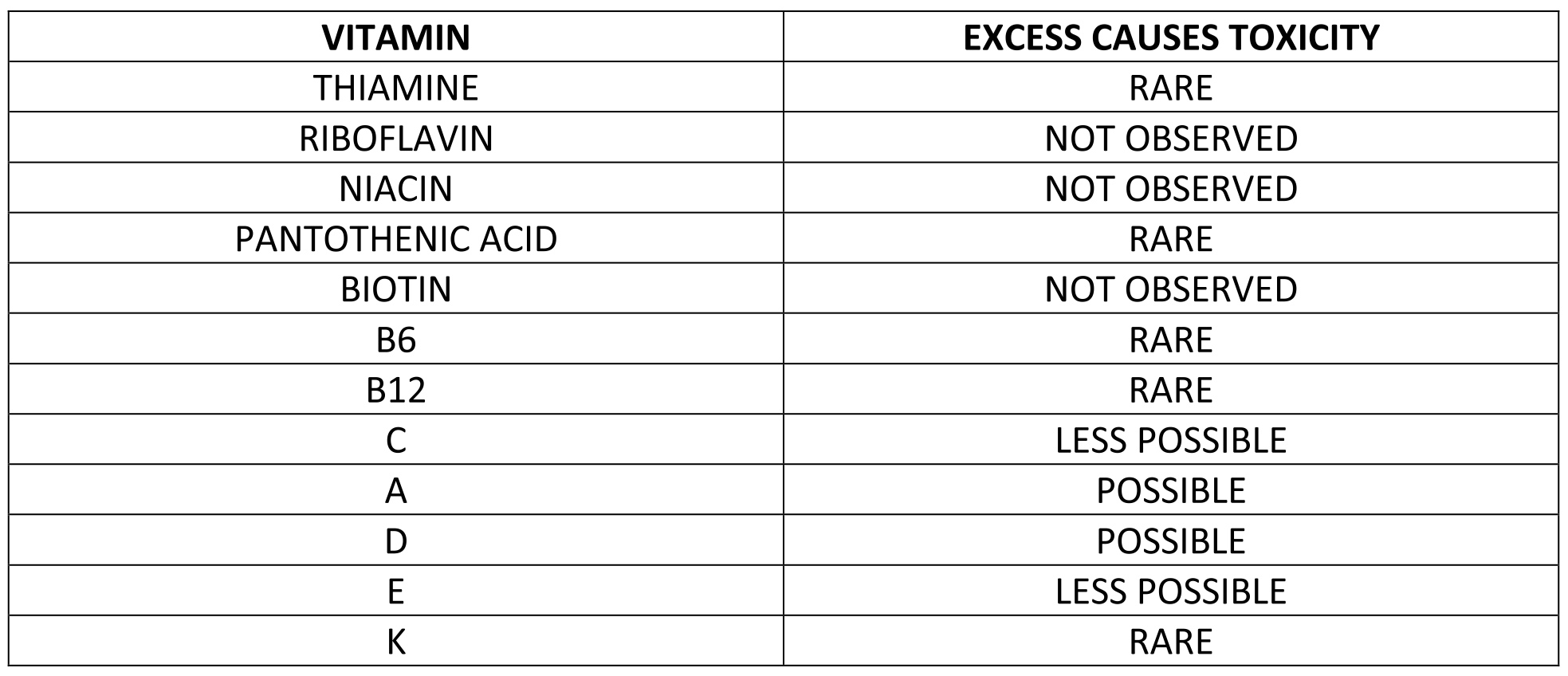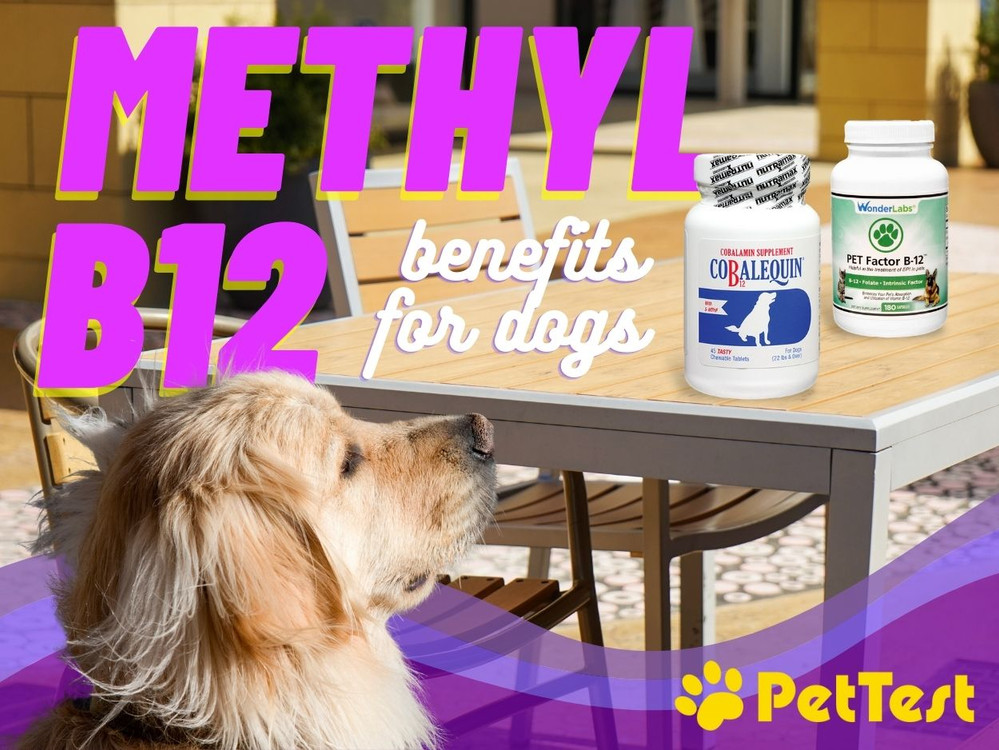Cobalamin (B12): Why Our Diabetics Dogs Need It & Why We Should Supplement!
Shortly after Lucy was diagnosed with diabetes in August 2015 she started having hind end weakness. I started giving her methyl B12 in a higher dose and amazingly she started playing and had no hind end weakness…a miracle! A couple of months later I decided to give it to my non-diabetic Bella who had arthritis and within a week I took video of her rolling around on the grass, this was something that she could not do for the prior year plus and I was so happy with the result both girls had with methyl B12 that I started giving it to my boy Frank as well. Even though the girls are no longer here, Frank gets methyl B12 daily and when Hannah is older I will supplement her with it as well.
Today I am going to talk about cobalamin (B12), why our dogs need it and why we should supplement. Grab a cup of your favorite caffeinated beverage and let’s get to it!
Cobalamin or B12 is important vitamin that is necessary for mammals to live, it is not something that mammals produce. B12 is synthesized by archaea and bacteria and is then transferred and accumulated in animals.
B12 plays a role in red blood cell formation, DNA synthesis and the central nervous system. B12 is crucial to the regeneration and formation of myelin sheaths. Myelin sheaths are insulation or protection for nerves, this includes nerves in the brain and the spinal cord. B12 also plays a role in the synthesis of neurotransmitters and hormones that control brain function.
As you can see B12 is vital for our dogs to run like fine-tuned machines. Our dogs are diabetic so we know that there has been a breakdown of their pancreas and the immune system. But what are some causes of B12 deficiency?
Exocrine pancreatic insufficiency better known as EPI is the inability to produce enzymes that digest food. Amylase, lipase and protease are produced by the exocrine cells of the pancreas and are the enzymes that break down carbs, fat and protein during digestion. When a dog has EPI, they cannot absorb carbs, fat and protein because they are not broken down in the intestine. Digestive enzymes to help break down food, easily digestive foods like hydrolyzed dog food, low fat and possible B12 supplements can be given to dogs with EPI.
Breed specific B12 deficiency – certain breed that are predisposed to B12 deficiency are the Giant Schnauzer, Beagle, Border Collie, Shar Pei and Australian Shepard. B12 supplementation is given.
Inflammatory bowel disease (IBD) is inflammation of the intestinal tract and causes the inability of the intestinal tract to absorb nutrients. B12 deficiency can be found in dogs with IBD and B12 supplements are given to help.
While there is research in humans with type 1 diabetes and B12 deficiency there aren’t studies of diabetic dogs and B12 deficiency. Since our dogs are type 1 diabetics, doesn’t it make sense that they can have B12 deficiency as well?
Diabetic humans can suffer from diabetic neuropathy so why can’t dogs (and cats for that matter)? There are clinical studies in diabetic humans that show when a higher dose of methyl B12 is given daily, nerves are regenerated and neuropathy is reduced. Unfortunately there are no studies of diabetic dogs with diabetic neuropathy and B12 supplementation but I have seen the power of methyl B12 repeatedly.
Many diabetic dogs in our Facebook group, Diabetic Dog Owners suffer from hind end weakness and supplementing has proven to help reduce or even get rid of hind end weakness. The same is true for our feline friends with diabetes, methyl B12 is supplemented often for hind end weakness with impressive results.
Methyl B12 is a water-soluble vitamin. Excess water-soluble vitamins are urinated out unlike fat-soluble vitamins.
Water-soluble vitamins are:
- Folate
- Thiamine
- Riboflavin
- Niacin
- Pantothenic Acid
- Biotin
- B6
- B12
- C
Fat-soluble vitamins are:
- A
- D
- E
- K
What is the difference between water-soluble and fat-soluble?
Water-soluble vitamins are in the body for a shorter period and any excess is urinated out. Fat-soluble vitamins are stored in fat cells and can be toxic in excess amounts.

Why have I mentioned toxicity information on vitamins? Because I want to share with you that we can safely give our dogs a higher dose of methyl B12 without worry of toxicity or organ damage.
Suggested dosing for oral B12 is 100 – 200 mcg. per kg. per day. Since we want to give our dogs a higher dose to help regenerate nerve paths a good dosage is right in the middle of that suggested dosing, 150 mcg. per kg. per day or 68 mcg. per lb. per day.
150/2.2 = 68.18 (so we round off to 68 for dosage in lbs.)
Here are some methyl B12 products that have been reviewed and/or used and are safe for our diabetic dogs. I typically suggest purchasing human methyl B12 supplements since the dose of methyl B12 is higher than in animal products. I also suggest getting methylcobalamin vs. cyanocobalamin since cyanocobalamin takes more work for the body to process.
NOTE: always read ingredients and inactive/other ingredients to ensure that xylitol (birch sugar) is not added. Xylitol is highly toxic to dogs. Sugars like maltodextrin, fructose or dextrose may be added and should be avoided since they will quickly raise blood glucose levels.
PetTest Methyl B-12 - Human grade, methylcobalamin liquid that tastes like roasted turkey. Each drop is 166.6 mcg. and 1 mL is 5,000 mcg. Here is a handy calculator for your dog's dosage: PetTest Methyl B-12 Dosage Calculator
Wonder Labs PET Factor B12 with Intrinsic Factor – Methyl B12 with added folate for dogs.
Nutramax Laboratories CoBalequin – comes in two sizes, small dogs & cats and over 22 lbs.
Human Methyl B12:
A Squared Nutrition Methyl B12 5,000 mcg – tablet form that can be broken in half.
A Squared Nutrition Methyl B12 Sublingual Liquid Drops - 5000 mcg – One dropperful is 5,000 mcg., so each drop is 166.66 mcg.
I hope that this blog has helped you learn why supplementing methyl B12 can be so beneficial for your diabetic dog, it helped Bella, Lucy, Frank and countless other diabetic dogs (and cats) with hind end weakness!
Until next week stay comfy and caffeinated!
If you have any questions, comments or suggestions, please start a conversation below.
If you are looking for a Facebook community to join for support, I have proudly been an admin in Diabetic Dog Owners for over five years. You can also join Canine Diabetes Support and Information on Facebook as well.
Be sure to join the PetTest family on Facebook and Instagram. PetTest has fun, interactive posts AND they have fabulous giveaways every week!
Do you need a blood glucose meter kit for your diabetes arsenal? Click here to purchase one today!
For a printable version of this blog click here.

